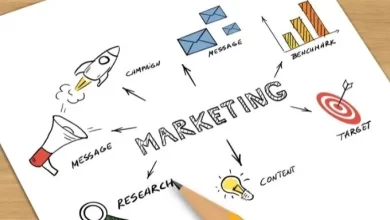Ways a Real Estate CRM Benefits Your Business

With more than two million estate agents in the US alone, real estate has become one of the most competitive industries.
While real estate has always been a physical job, it is significantly shifting towards the digital world, thanks to the internet, social media, and online communities. According to a study, 99% of millennials search online to get general information about the housing market and home buying. 58% of them find a place they want to buy via their smartphone or tablet.
Now the question is, how to meet the expectations of modern real estate buyers? The answer lies in the CRM.
The customer relationship management (CRM) software helps organize your everyday tasks, provides a bird’s eye view of your deals, and enables you to offer the best possible customer experience.
In this article, we will discuss the top X reasons you need a real estate CRM as soon as possible. Let’s get started!
6 Ways a Real Estate CRM Benefits Your Business
1. Bring All Your Leads Under One Roof
In real estate, you might get leads from various sources. For instance, it could be from your website, third-party realtors, marketing campaigns, referrals, or open houses. Without a proper system, keeping track of all of them could be challenging.
Customer relationship management software enables you to keep all your prospects’ details in one place. If you have a website, you can create web forms that, when filled, will be updated to your CRM directly. This will ensure you don’t miss any prospect details and know where they are coming from.
Additionally, modern CRM allows you to engage with your prospects in real-time with chat and email options.
2. Better Prioritize Leads
Now that you have a list of prospects, how do you know who are really looking for a property and who are just browsing? Again, a CRM can help!
CRM allows you to score leads as hot, warm, or cold, depending on how likely they are to convert. This will enable you to focus on prospects who are really interested than those who are unresponsive.
Since a CRM collects every prospect’s details, you can always follow cold leads after being done with hot and warm ones.
3. Track The Progress You’re Making With Each Customer
Let’s suppose your team engaged with over 50 potential buyers in the last seven days. You have all the sales processes mapped out in your mind. But how do you know which prospect is at what stage of the sales pipeline?
An advanced CRM can help you keep track of the progress you’re making with each customer. For example, you can check how many prospects have scheduled site visits, if they are asking for more details, virtual tours, are at the negotiation stage, or have additional steps in between.
This will allow you to create a personalized marketing campaign to nurture and convert them.
4. Increase Efficiency and Productivity
Even if you have a large sales team, they are probably busy following up on lead inquiries or scheduling site visits. This means they should not spend more time doing redundant tasks.
The best real estate CRM software enables you to automate several aspects to increase efficiency and productivity, such as:
- Contact management
- Tracking lead’s status and progress
- Quote and order management
- Reporting (to understand how you’re performing using KPIs)
- Email drip campaigns
- Pipeline stage transitions
- Data sync (from other tools and website)
4. Maintain Compliance
Every country has a set of rules and regulations that must be followed when running a real estate business. Failure to comply might impact your ability to obtain a certificate of occupancy and stall refinances.
The best real estate CRM software supports government regulations and simplifies the communication between you and the buyer. It also provides organized and accurate information on every deal, enabling you to maintain compliance all the time.
5. Take Smarter, Data-Backed Decisions
When you are on top of your business’s progress and have all the necessary information, you can make better decisions.
Since CRM consists of all the details (customer information, deals, and sales pipeline), you get a holistic view of your business processes. This also allows you to find gaps in your sales processes and improve them.
6. Build Better Relationship With Customers
Even though there are several channels to acquire customers, nothing can beat word-of-mouth marketing and referrals. The typical realtor receives around 30% of their business from repeat clients or referrals.
As mentioned above, CRM stores all the customer information, which you can use to build better relationships. For instance, you can wish them on birthdays and anniversaries, share DIY tips to maintain their home, or send newsletters.
Wrapping Up
Customer relationship management software makes it easier for real estate owners to manage their businesses. It enables you to bring all your leads under one roof, score them based on their likelihood to convert, automate tedious tasks, and build better relationships with customers.
If you have not invested in real estate CRM yet, now is the right time. Make sure to choose the best real estate CRM software for your business!



